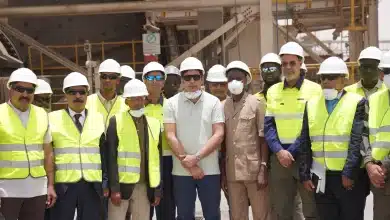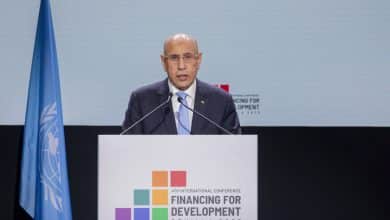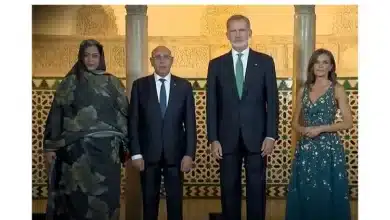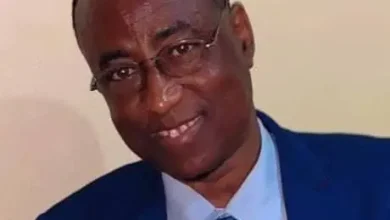The impossible ethnic equality
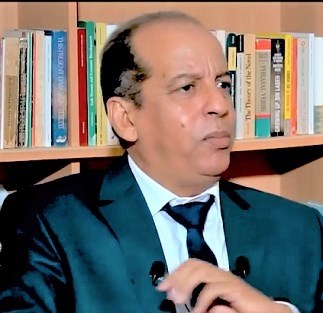
The impossible ethnic equality
Black Mauritanian nationalists have always advocated an ‘ethnocratic’ system of managing state affairs. This political philosophy is still alive and well, and has fiery supporters. They demand a precise, equal sharing of power and national wealth between the races, as if the republic were divisible into communities.
Article 1 of the Mauritanian Constitution, which is modelled on the French one, is evident in the community issue:
– The republic ensures that all citizens, without distinction of origin, race, sex, or social condition, are equal before the law.
– Any particularistic propaganda of a racial or ethnic nature is punishable by law.
We quickly learn from this first article of French fundamental law that the republican system repudiates communitarianism. It also enshrines citizenship, meaning rights are for individual citizens and equality between citizens and not ethnic groups. Therefore, the constitution does not consider ethnic communities as political institutions or law subjects.
One day, President François Hollande, exasperated by the drift of a particular French political discourse with strong populist content, made the following statement: ‘The republic does not know races or skin colours, and it does not recognise communities. It knows only citizens, free and equal in law, which is non-negotiable’.76
Let us add to the former French president’s declaration that ethnicity and people are not interchangeable. One is only a part of the other, which is why we speak of the French or Senegalese people or nation when referring to the sum of all its ethnic components.
In the absence of an exclusive Fulani-speaking state, its theorists campaign everywhere they are, at the level of each West African state, to obtain recognition as an ethnic group given the rights guaranteed to nations. Furthermore, because peoples are equal in law, they build on this notion, transpose it, and claim ethnic equality.
Suppose the Mauritanian state has enshrined equality between the ethnic groups in its constitution. Will it still be asked to decree that the Fula, Soninke, Wolof, and Arabs are equally knowledgeable, wealthy, artistic, athletic, commercial, industrious, and resourceful?
Such a levelling out is impossible.
The state is like a family, and there is no guarantee that children from the same family, treated and educated evenly and appropriately in the same fair and appropriate manner, will succeed in the same way. Other objective factors, which have nothing to do with governmental action, come into play to determine the trajectory of each of them and to lead them to success or failure or an intermediate position. It is the natural order of things. On the other hand, it is the duty of the state, and this is easy, to lay down the rules of justice, equity and equal opportunities, the same for all, and to ensure that they are respected because it is the protector, the distributor and the regulator. Under these conditions, the social lift should generally function for the benefit of all citizens without guaranteeing their ascension, since there are factors that cause one group to emerge and another to lag. These include dynamism, initiative, creativity, ingenuity, history, and demography.
Anyone who knows Africa knows that its ethnic groups did not play the same role in the creation and independence of states, nor did they have the same historical importance or demographic weight.
In Mali, for example, how can one logically put the Bambara and the Bozo on an equal footing? To do so would be a significant error of appreciation and ignorance of Malian human geography!
Nations do not progress in the same way and at the same pace, but the wheel of history turns. For example, there was a time when the Arabs dominated; they arrived at Poitiers in France.
The English and the French controlled the world in the 18th and 19th centuries. After the Second World War, universal leadership shifted to the Americans and Russians. Tomorrow, it will be the turn of the Chinese, and so on. Therefore, there is no fatality in this matter. Through work and great deeds, people distinguish themselves and move forward. It is irrational to rush through the stages or engage in a competition whose terms are far from the same.
Regarding ethnic equality, Black communitarians also raise the question of linguistic equality by arguing that all languages are equal. On this point, they are correct, at least partly, in that language is, by definition, a communication system. Absolutely, but languages are not at the same level of development, and they do not all have the same international influence. Are we going to put Occitan, Catalan, or Tahitian at the same level of global influence as French, a universal language, a UN language, ranked fifth on the list of the most widely spoken languages in the world?
Integration is ‘the fusion of a territory or a minority into the national whole’. It is anything else but exclusion because it ‘differs from assimilation, which tends to make all cultural specificity disappear’. Integration, therefore, strengthens social ties and refuses ghettoisation, which leads to segregation; its objective is to mix ethnic groups in the same mould to make a single nation, certainly racially mixed, but a united one all the same.
Consequently, a citizen from a minority background intending to become the head of his country democratically must do what Barack Obama did. The former US president understood it; he knew that he could not rely on the 10 per cent of the Black vote to win the US presidential election. As a good Democrat, non-ethnicist, and non-communitarian, he made the right choice of integration, so he took over the United States and ruled the world.
Malcolm X or any other Black American activist would never have made it because of Black- centrism, the refusal to see the big picture, and big plans for the future.
On the other side of the Senegal River, Macky Sall adopted the same behaviour as Obama; he did not use his ethnicity as a strategy to win power. Macky, the Tekrur, was the lieutenant of the Wolof Abdoulaye Wade; he had waited for his “national” time; this time came one day in March 2012, and today he is the president of all Senegalese, all ethnic groups included.
Ely Ould Sneiba

